At the discussion session on the afternoon of June 20, delegates highly agreed on the necessity and urgency of the three expressway projects Quy Nhon-Pleiku, Bien Hoa-Vung Tau and Ho Chi Minh City Ring Road 4.
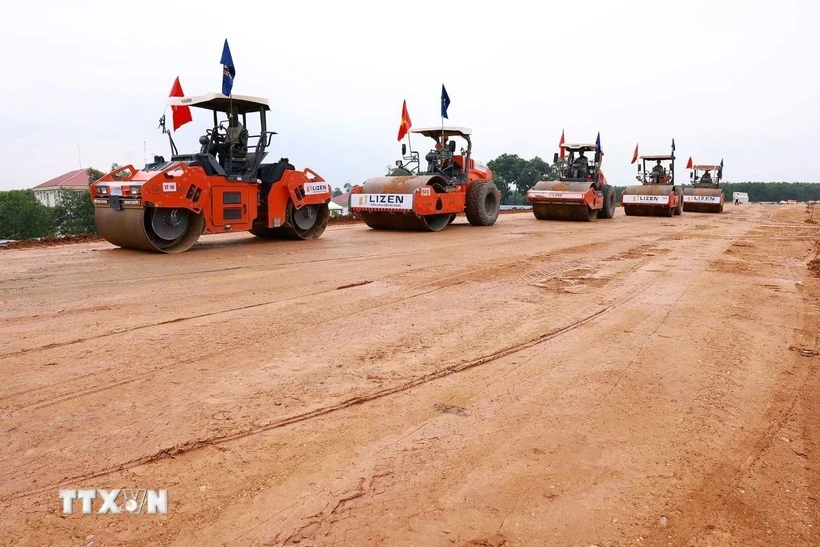
Continuing the 9th Session, on the afternoon of June 20, the National Assembly discussed in the hall: Investment policy for the Quy Nhon-Pleiku Expressway Construction Investment Project; Investment policy for the Ho Chi Minh City Ring Road 4 Construction Investment Project; Adjustment of investment policy for the Bien Hoa-Vung Tau Expressway Construction Investment Project, Phase 1.
Delegate Pham Van Hoa (Dong Thap) affirmed that Ho Chi Minh City Ring Road 4 is a vital route connecting the Southeast, Southwest, Ho Chi Minh City, and even the Central provinces, with seaports, airports, and new urban areas. This is an extremely important route for the socio -economic development of not only Ho Chi Minh City but also the entire Southern region.
However, delegates expressed concerns about the parallel investment plan: The main road invested in the form of PPP has toll collection, while the parallel road is invested by the public without toll collection. Thus, people will choose the free road, making it difficult to collect tolls on the main road.
Delegates from Dong Thap province suggested that policies should be synchronized, either charging for both or exempting both; in addition, it is necessary to consider the viaduct option in the Mekong Delta due to weak ground, to reduce landfill costs and ensure progress in the context of material shortage.
Delegate Tran Van Tien (Vinh Phuc) commented on the incomplete technical documents and suggested adding drawings, number of lanes, and cross-section width before approval. According to the delegate, the total investment does not include the 47.95km invested by Binh Duong province. If tolls are collected on the entire route, the entire financial plan needs to be recalculated.
Regarding the design, delegates proposed using a viaduct structure in weak ground sections and placing the route to one side to facilitate the expansion of phase 2. At the same time, it is necessary to clarify the scope and mechanism of BOT toll collection.
Regarding the investment policy of the Quy Nhon - Pleiku Expressway Construction Investment Project, the majority of National Assembly deputies expressed strong support and provided specific comments to complete these strategically significant projects.
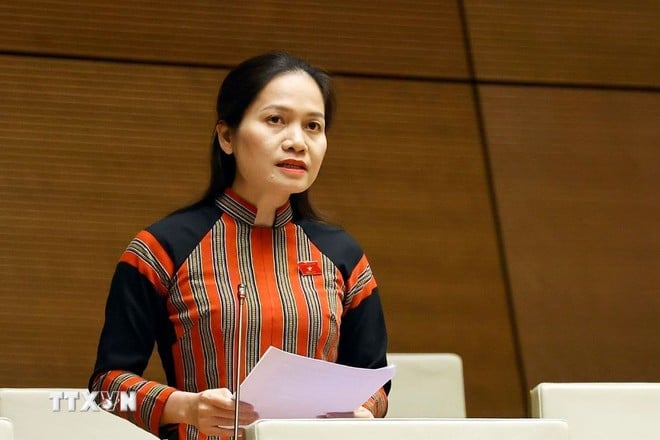
Delegate Siu Huong (Gia Lai) emphasized that the Quy Nhon-Pleiku expressway is an “important East-West traffic axis” connecting the Central Highlands with the South Central Coast, international border gates such as Le Thanh, Bo Y with major seaports such as Quy Nhon, Nhon Hoi. The route shortens travel time from 3.5-4 hours to 2-2.5 hours, reduces transportation costs by up to 60%, and expands cross-border trade opportunities with Southern Laos and Northeastern Cambodia.
The project not only helps to transport key products such as coffee, rubber, and pepper to seaports faster, but also creates land for development, attracts investment, reduces population pressure in central urban areas, and ensures border security.
In particular, in the context of merging Gia Lai and Binh Dinh provinces into the new Gia Lai province (according to Resolution 202/2025/QH15 dated June 12, 2025), this expressway plays the role of a "lifeline bridge" between the administrative center in Quy Nhon and other areas.
Delegate Nguyen Truc Son (Ben Tre) said that for urgent projects like the Quy Nhon-Pleiku expressway, the bidding mechanism should be applied to consulting packages to save time, and at the same time proposed applying the form of "one bidding package, two envelopes" to select capable contractors.
Delegates recommended that the Government flexibly decide on the form of bidding for construction and installation, avoiding rigidity and creating conditions for more effective implementation.
Giving comments on adjusting the investment policy of the Bien Hoa-Vung Tau Expressway Construction Project Phase 1, delegate Nguyen Tam Hung (Ba Ria-Vung Tau) highly supported adjusting the total investment of this project from VND 17,837 billion to VND 21,551 billion, due to actual factors arising such as compensation and resettlement costs.
Ba Ria-Vung Tau's commitment to provide sufficient local budget capital for the additional portion is a testament to its determination to work with the Central Government. The delegate said that the 19.5km-long component 3 section undertaken by the province was technically opened to traffic in April 2025, 6 months earlier than required, demonstrating effective coordination between the government, contractors and people.
Delegates all agreed on the necessity and urgency of these three highway and beltway projects. The projects not only solve traffic problems but also open up new development space, connect regions, reduce logistics costs, improve competitiveness, attract FDI and ensure national security.
The early approval of policies and the completion of implementation mechanisms and policies create momentum for these important projects to be started and completed on schedule, serving sustainable socio-economic development.
Explaining the opinions of delegates about the Bien Hoa-Vung Tau Expressway project phase 1, Minister of Construction Tran Hong Minh said that the reason the total investment of the project (especially the compensation and site clearance costs) exceeded VND3,000 billion in both Dong Nai and Ba Ria-Vung Tau was due to the survey and investment policy establishment process from 2019-2020, when the unit price was different. When construction began in 2023-2024, a new unit price had to be applied, leading to a significant difference.
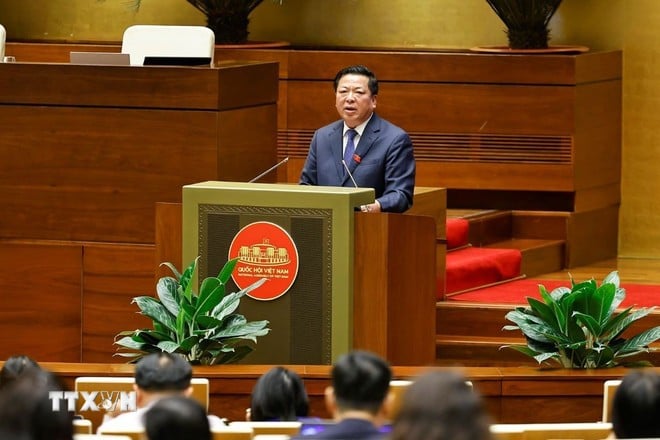
Clarifying his opinion on special policies and bidding mechanisms, Minister of Construction Tran Hong Minh said that due to difficulties in the bidding process, affecting the progress of transport projects, it is necessary to request special mechanisms from the National Assembly for urgent projects.
Explaining the concerns of delegates about the scarcity of sand and land for filling, especially in the Mekong Delta region in the context of huge investment in highway density in this region, the Minister said that the Government, ministries, sectors and localities are resolutely seeking solutions, including research on the use of sea sand and ensuring supply from mines in localities in the region.
According to Minister Tran Hong Minh, regarding the investment capital for the project through Long An province, because Long An is a province with difficulties, the Government has a policy of using the central budget to support the construction and installation part, the province is only responsible for the site clearance part./.
Source: https://baolangson.vn/quoc-hoi-khoa-xv-giai-bai-toan-giao-thong-qua-cac-du-an-cao-toc-va-vanh-dai-5050766.html








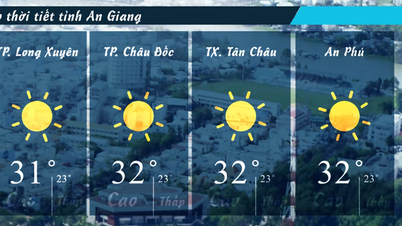

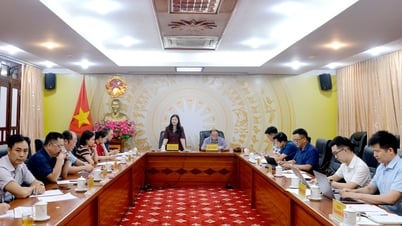



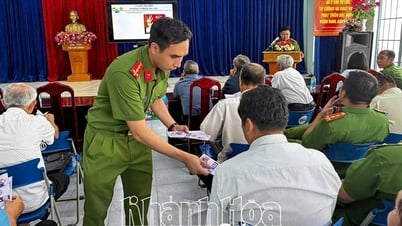
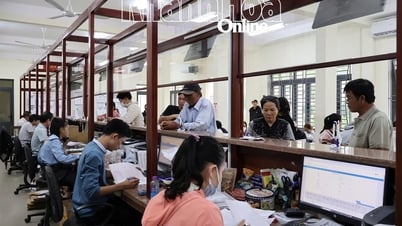






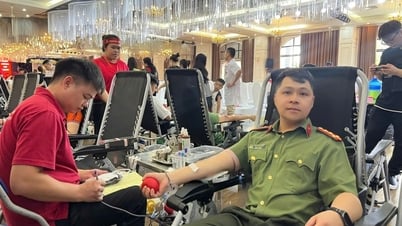
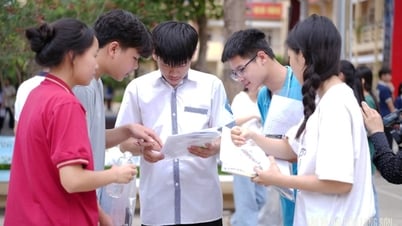

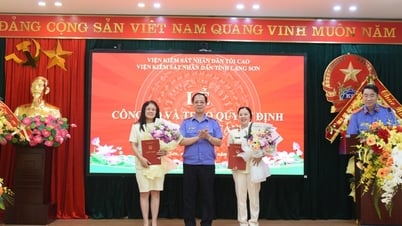
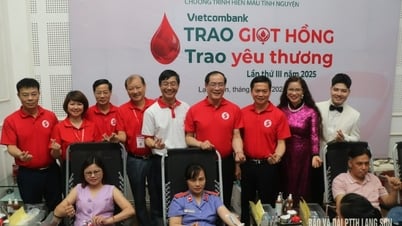
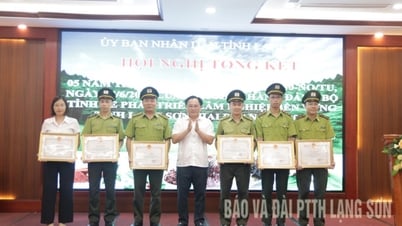
![[Photo] The 9th Congress of the Party Committee of the Office of the President, term 2025-2030](https://vphoto.vietnam.vn/thumb/1200x675/vietnam/resource/IMAGE/2025/6/20/78e7f27e8c4b4edc8859f09572409ad3)












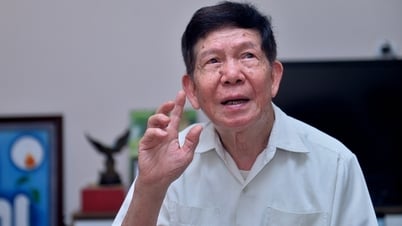














![[Maritime News] Wan Hai Lines invests $150 million to buy 48,000 containers](https://vphoto.vietnam.vn/thumb/402x226/vietnam/resource/IMAGE/2025/6/20/c945a62aff624b4bb5c25e67e9bcc1cb)


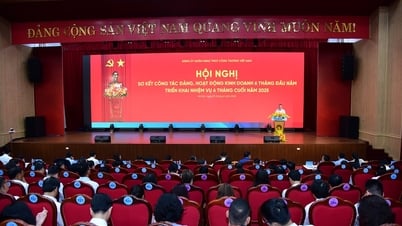






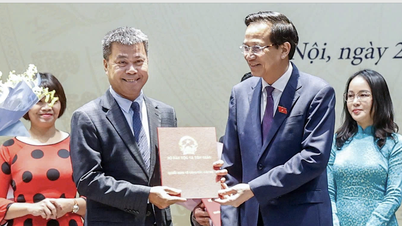
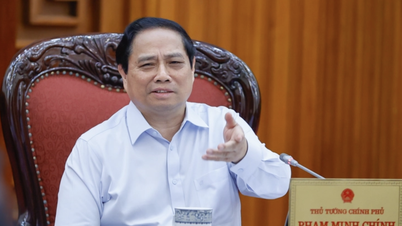




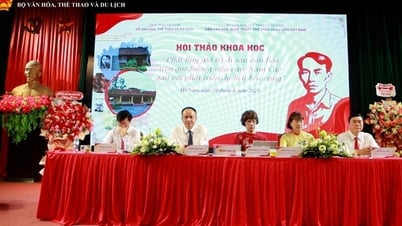
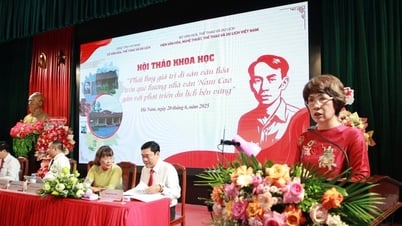

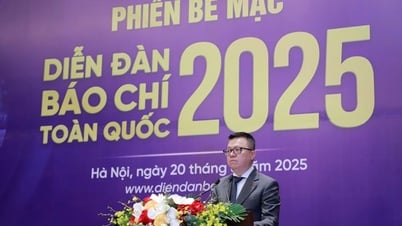
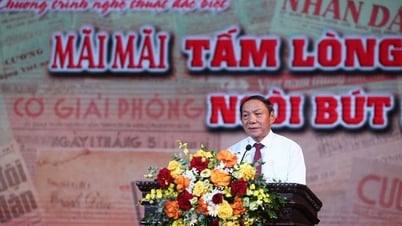




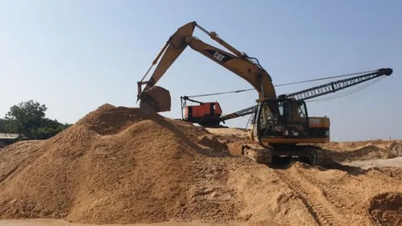
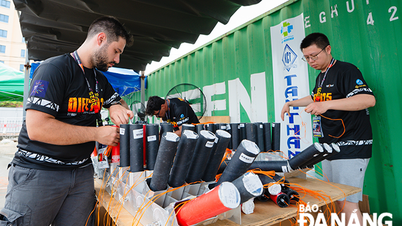

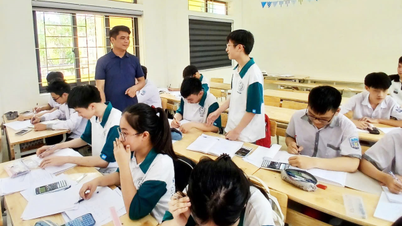













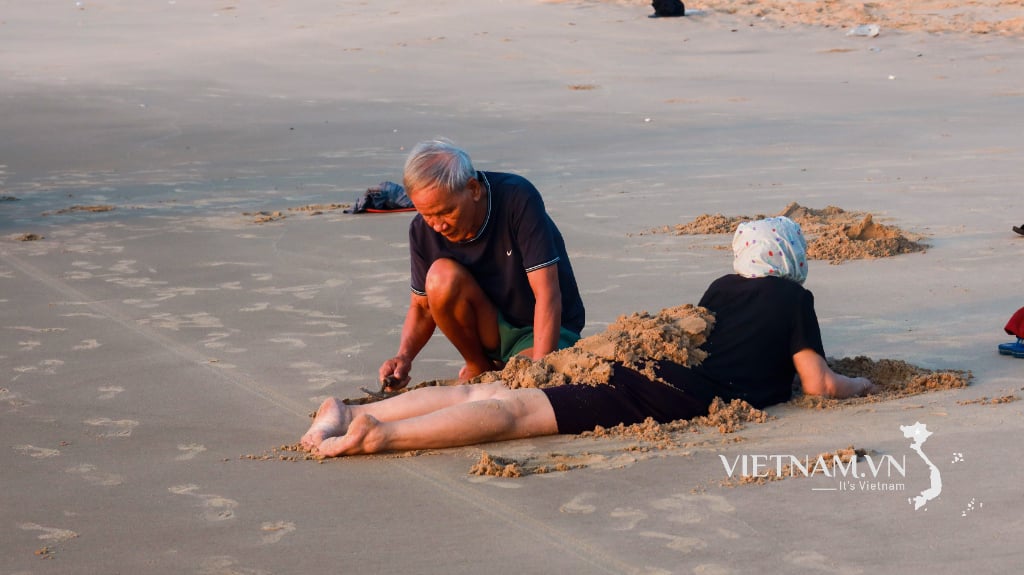
Comment (0)